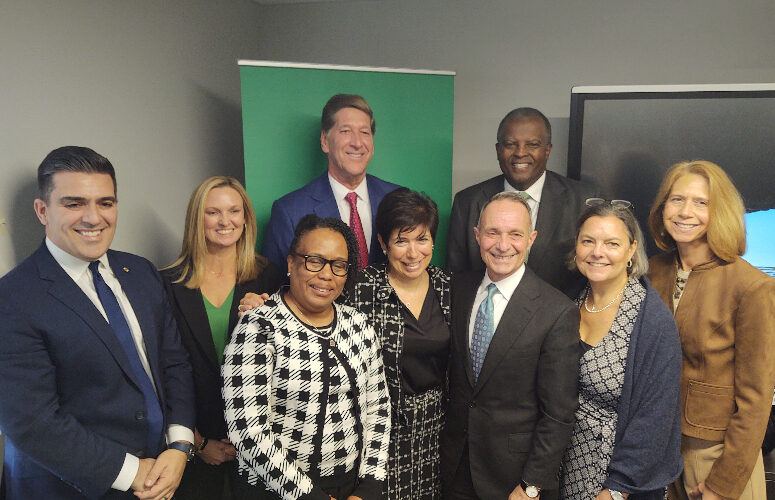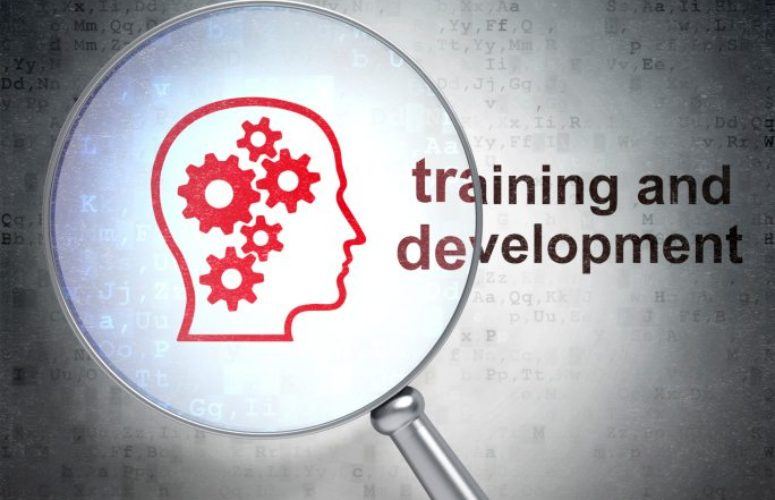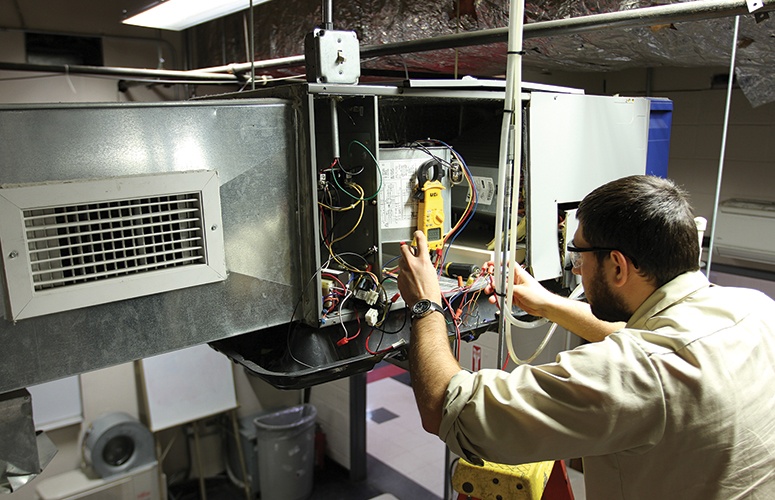
Citizens’ Roundtable Seeks Workforce Development Solutions
By Anthony Birritteri, Editor-in-Chief On Dec 1, 2023According to Bruce Van Saun, Citizens Financial Group’s chairman and CEO, healthy and thriving communities are the cornerstone of the bank’s business strategy and credo. Yesterday, the Rhode Island-headquartered financial institution, which is fairly new to the New Jersey market, underscored that belief by pledging $700,000 to help upskill and reskill New Jersey workers.
The bank also convened a roundtable yesterday in Paterson, attended by some 35 leaders from economic development organizations, institutions of higher education, business groups, social service organizations and other nonprofits, to discuss workforce development challenges and solutions for the region.
Many businesses in New Jersey are having a hard time finding talent, especially in the aftermath of the COVID-19 pandemic. With that, Citizens is “reaching out into its communities to work with partners in order to … broaden the population of people who can get on the economic ladder, obtain necessary skills and [land] high paying jobs,” according to Van Saun.
NJBIA President and CEO Michele Siekerka, who also sits on the Citizens Financial Group’s Board of Directors, moderated the roundtable. She opened the discussion with a question on what challenges people wanting to enter the workforce are facing. The answers ranged from a lack of childcare and transportation options to recruitment issues, entry level wages and benefits, and policies that prevented people from advancing themselves.
According to Patricia Sermon, chief operations officer of the Urban League of Essex County, recruitment is a big challenge. While this was true prior to the pandemic, it is more amplified now as more jobs require highly technical skills. Because of that, it is difficult to find people who want to invest in that training, Sermon explained, adding that the other issue is getting people off public assistance and into jobs.
“People are saying, ‘Why should I get a job if public assistance is paying for my health benefits, which are astronomical? If I do get a job, that money is going to come out of my check. Then there are childcare expenses. So, will I really have enough money to be self-sufficient?’ … If we can’t change some of the policies, we are going to be suffering for a long time,” Sermon said.
John Harmon, founding president and CEO of the African American Chamber of Commerce of New Jersey, echoed Sermon’s point. “A lot of policies, [from] some of the folks who are supposedly representing our interests, are doing us a disservice. A lot of the policies do undermine our potential to have a better life. We own some of that, but we all must own it.”
The roundtable was held the same day Gov. Phil Murphy celebrated the start of construction on the $16 billion Gateway tunnel project on the New Jersey side of the Hudson River. The various stakeholders at the table were asked how they could ensure that their communities take part in what is considered the largest public works project in the nation in quite some time.
Siekerka said collaboration is needed. “We need to go up to the policy level and make sure there are set aside contracts to ensure that some of that [Gateway] money stays local,” she said, adding that communities should be connected with the entities that are going to be delivering those projects, such as construction trade unions.
Meanwhile, James Horne, president and CEO of Junior Achievement of New Jersey (JANJ), was interested in how his organization could help the various organizations at the table develop the pipeline of future workers.
“A lot of our young people were distracted and damaged during the COVID-19 pandemic,” he said. “We must get them back on track. Technology is changing and being implemented at the speed of light. How can JANJ help [students] understand what they should be thinking about – and preparing for – so that they can be successful adults? That is the voice I wanted to bring to this conversation.”
At the end of the day’s discussion, Siekerka said there were numerous policy opportunities to coalesce around and coalitions to build. “Citizens Bank must take what they heard today and think about how it can continue to support its local communities in and around New Jersey,” she said.
Susan LaMonica Pash, chief human resources officer at Citizens and an Oasis board member, said the challenge now is to focus, because “there could be a lot of activity all over the place. … It seems like there are some stakeholders that need to be in the conversation, whether it’s trade unions representatives, political leaders, or others.”
Citizens’ $700,000 pledge for funding workforce initiatives across the state is in addition to past financial resources the financial institution has provided. Examples of organizations that are benefitting from the new funding include:
- $75,000 from the Citizens Philanthropic Foundation to support Oasis’ new Career Counseling program for low-income, minority women. The program will provide individual and group career coaching, workshops, resume assistance, and internships to help women gain skills, identify career paths, and find employment. It also offers wrap-around services such as computer training, meals, and social work support to help women improve their lives through employment.
- $100,000 from the Citizens Philanthropic Foundation to LISC of Greater Newark to fund an extension of LISC’s Thriving Neighborhoods Initiative. The Neighbors Helping Neighborhoods Program provides microgrants to projects created by resident-leaders and grassroots community groups that improve the quality of life and economic resilience in Newark’s Fairmount Heights and Clinton Hill communities.
- $50,000 from Citizens Philanthropic Foundation to Focus NJ benefitting the launch of its Workforce Development Initiatives and Opportunities Resource Page. The page was designed as an evergreen, public resource to promote collaboration in the Garden State and to advance retraining efforts for New Jersey’s workers. The site hosts programmatic information for more than 200 public and private workforce development programs intended for individuals and employers to identify training providers and opportunities in their community in order to increase access to upskilling and reskilling and to increase collaboration between providers and job creators.
Additional partners receiving funding include:
| Local Partner | Program |
| African American Chamber of Commerce of NJ (AACCNJ) | African American History Month Gala
Juneteenth Black Business Expo |
| Basie Center for the Arts | Internship program |
| Community Food Bank of New Jersey | Culinary Arts Training Program |
| Elijah’s Promise | Culinary Training Program |
| Elizabeth Development Company of New Jersey | Workforce programs for women and minorities |
| Food Bank of South Jersey | Youth Nutrition Outreach Training Program |
| Fulfill (Food Bank of Monmouth and Ocean Counties) | Culinary Skills Training Program |
| Hudson County Community College | Gateway to Innovation Program |
| Hudson County Economic Development Corporation | Internship Program |
| Ironbound Community Corporation | Career-specific training and adult basic education classes |
| Junior Achievement NJ | Workforce Development Programs |
| Korean Community Services | Small business digital marketing program |
| Newark Performing Arts Corporation | Production Training and Assistance Program |
| New Jersey Association on Corrections | Survivor Economic Empowerment Program |
| New Jersey Community Development Corporation | Compete for Life Program |
| NPower | Digital divide training program |
| Per Scholas | Technology focused training |
| Statewide Hispanic Chamber of Commerce
|
Conference on Diversity |
| Urban League of Essex County | Clean Energy Jobs partnership |
| Year Up | Upskilling/reskilling tech grant
|
To access more business news, visit NJB News Now.
Related Articles:





